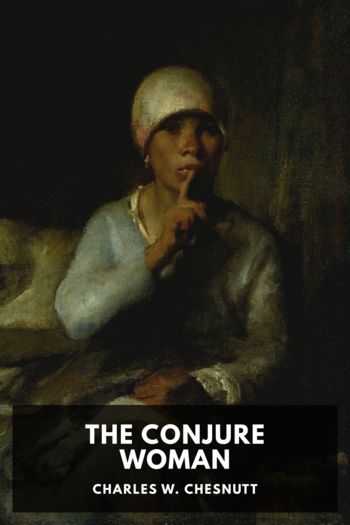The Lives of the Caesars, Suetonius [best book club books for discussion .TXT] 📗

- Author: Suetonius
Book online «The Lives of the Caesars, Suetonius [best book club books for discussion .TXT] 📗». Author Suetonius
He died in the same room as his father Octavius, in the consulship of two Sextuses, Pompeius and Appuleius, on the fourteenth day before the Kalends of September at the ninth hour, just thirty-five days before his seventy-sixth birthday.
His body was carried by the senators of the municipalities and colonies from Nola all the way to Bovillae, in the night time because of the season of the year, being placed by day in the basilica of the town at which they arrived or in its principal temple. At Bovillae the members of the equestrian order235 met it and bore it to the city, where they placed it in the vestibule of his house.
In their desire to give him a splendid funeral and honour his memory the senators so vied with one another that among many other suggestions some proposed that his cortege pass through the triumphal gate, preceded by a statue of Victory which stands in the House, while a dirge was sung by children of both sexes belonging to the leading families; others, that on the day of the obsequies golden rings be laid aside and iron ones worn; and some, that his ashes be collected by the priests of the highest colleges. One man proposed that the name of the month of August be transferred to September, because Augustus was born in the latter, but died in the former; another, that all the period from the day of his birth until his demise be called the Augustan Age, and so entered in the Calendar. But though a limit was set to the honours paid him, his eulogy was twice delivered: before the temple of the Deified Julius by Tiberius, and from the old rostra by Drusus, son of Tiberius; and he was carried on the shoulders of senators to the Campus Martius and there cremated. There was even an ex-praetor who took oath that he had seen the form of the Emperor, after he had been reduced to ashes, on its way to heaven. His remains were gathered up by the leading men of the equestrian order, barefooted and in ungirt tunics, and placed in the Mausoleum. This structure he had built in his sixth consulship between the Via Flaminia and the bank of the Tiber, and at the same time opened to the public the groves and walks by which it was surrounded.
He had made a will in the consulship of Lucius Plancus and Gaius Silius on the third day before the Nones of April, a year and four months before he died, in two notebooks, written in part in his own hand and in part in that of his freedmen Polybius and Hilarion. These the Vestal virgins, with whom they had been deposited, now produced, together with three rolls, which were sealed in the same way. All these were opened and read in the senate. He appointed as his chief heirs Tiberius, to receive two-thirds of the estate, and Livia, one-third; these he also bade assume his name.236 His heirs in the second degree237 were Drusus, son of Tiberius, for one-third, and for the rest Germanicus and his three male children.238 In the third grade he mentioned many of his relatives and friends. He left to the Roman people forty million sesterces; to the tribes239 three million five hundred thousand; to the soldiers of the pretorian guard a thousand each; to the city cohorts five hundred; and to the legionaries three hundred. This sum he ordered to be paid at once, for he had always kept the amount at hand and ready for the purpose. He gave other legacies to various individuals, some amounting to as much as twenty thousand sesterces, and provided for the payment of these a year later, giving as his excuse for the delay the small amount of his property, and declaring that not more than a hundred and fifty millions would come to his heirs; for though he had received fourteen hundred millions during the last twenty years from the wills of his friends, he said that he had spent nearly all of it, as well as the estates left him by his natural and his adoptive father, for the benefit of the State. He gave orders that his daughter and his granddaughter Julia should not be put in his Mausoleum, if anything befell them.240 In one of the three rolls he included directions for his funeral; in the second, an account of what he had accomplished, which he desired to have cut upon bronze tablets and set up at the entrance to the Mausoleum;241 in the third, a summary of the condition of the whole empire; how many soldiers there were in active service in all parts of it, how much money there was in the public treasury and in the privy-purse, and what revenues were in arrears. He added, besides, the names of the freedmen and slaves from whom the details could be demanded.
Book III TiberiusThe patrician branch of the Claudian family (for there was, besides, a plebeian branch of no less influence and prestige) originated at Regilli, a town of the Sabines. From there it moved to Rome shortly after the founding of the city with a large band of dependents, through the influence of Titus Tatius, who shared the kingly power with Romulus (or, according to the generally accepted view, of Atta Claudius, the head of the family) about six years after the expulsion of the kings.242 It was admitted among the patrician families, receiving, besides, from the State a piece of land on the





Comments (0)